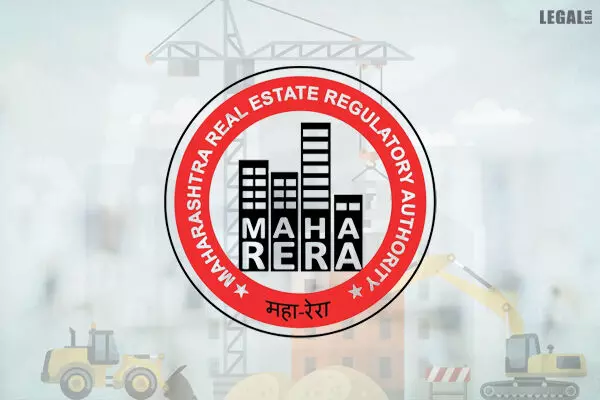- Home
- News
- Articles+
- Aerospace
- Artificial Intelligence
- Agriculture
- Alternate Dispute Resolution
- Arbitration & Mediation
- Banking and Finance
- Bankruptcy
- Book Review
- Bribery & Corruption
- Commercial Litigation
- Competition Law
- Conference Reports
- Consumer Products
- Contract
- Corporate Governance
- Corporate Law
- Covid-19
- Cryptocurrency
- Cybersecurity
- Data Protection
- Defence
- Digital Economy
- E-commerce
- Employment Law
- Energy and Natural Resources
- Entertainment and Sports Law
- Environmental Law
- Environmental, Social, and Governance
- Foreign Direct Investment
- Food and Beverage
- Gaming
- Health Care
- IBC Diaries
- In Focus
- Inclusion & Diversity
- Insurance Law
- Intellectual Property
- International Law
- IP & Tech Era
- Know the Law
- Labour Laws
- Law & Policy and Regulation
- Litigation
- Litigation Funding
- Manufacturing
- Mergers & Acquisitions
- NFTs
- Privacy
- Private Equity
- Project Finance
- Real Estate
- Risk and Compliance
- Student Corner
- Take On Board
- Tax
- Technology Media and Telecom
- Tributes
- Viewpoint
- Zoom In
- Law Firms
- In-House
- Rankings
- E-Magazine
- Legal Era TV
- Events
- Middle East
- Africa
- News
- Articles
- Aerospace
- Artificial Intelligence
- Agriculture
- Alternate Dispute Resolution
- Arbitration & Mediation
- Banking and Finance
- Bankruptcy
- Book Review
- Bribery & Corruption
- Commercial Litigation
- Competition Law
- Conference Reports
- Consumer Products
- Contract
- Corporate Governance
- Corporate Law
- Covid-19
- Cryptocurrency
- Cybersecurity
- Data Protection
- Defence
- Digital Economy
- E-commerce
- Employment Law
- Energy and Natural Resources
- Entertainment and Sports Law
- Environmental Law
- Environmental, Social, and Governance
- Foreign Direct Investment
- Food and Beverage
- Gaming
- Health Care
- IBC Diaries
- In Focus
- Inclusion & Diversity
- Insurance Law
- Intellectual Property
- International Law
- IP & Tech Era
- Know the Law
- Labour Laws
- Law & Policy and Regulation
- Litigation
- Litigation Funding
- Manufacturing
- Mergers & Acquisitions
- NFTs
- Privacy
- Private Equity
- Project Finance
- Real Estate
- Risk and Compliance
- Student Corner
- Take On Board
- Tax
- Technology Media and Telecom
- Tributes
- Viewpoint
- Zoom In
- Law Firms
- In-House
- Rankings
- E-Magazine
- Legal Era TV
- Events
- Middle East
- Africa
Maharashtra RERA rules it has no jurisdiction over redevelopment projects disputes

Maharashtra RERA rules it has no jurisdiction over redevelopment projects disputes
Suggests the residents approach the appropriate forum
The Maharashtra Real Estate Regulatory Authority (RERA) has clarified that the RERA Act has no jurisdiction over redevelopment projects. Accordingly, it dismissed complaints by tenants who were eligible for an apartment as part of a redevelopment project in Mumbai.
The tenants in Girgaon had approached RERA seeking compensation. However, the regulator in its order stated that the rehabilitation component of a project did not fall under its purview. It suggested the residents approach the appropriate forum for complaints.
The three complainants were original tenants of the 'Veer Vilas and Hendre Building' situated in South Mumbai's Girgaon area. The building was undertaken for redevelopment by Vardhman Developers under the Maharashtra Housing and Area Development Authority (MHADA) scheme. In 2016, the tenants signed a permanent alternate accommodation agreement.
The tenants complained to RERA that the developer had agreed to provide a shop/flat in the newly-constructed building. This was along with monthly rental compensation of Rs.175 per square foot with a 10 percent annual increment till the actual date of possession.
They alleged that the developer failed to compensate them from October 2017 to December 2020. It also did not hand over the possession of the premises within the stipulated period of 24 months with an additional grace period of six months.
The complainants demanded that RERA direct the developer to hand over the possession of their premises, and to pay deficit payment and arrears followed by compensation.
At the time of the hearings, the developer sought an amicable solution. But later, it filed an application with the regulator raising the issue of maintainability and seeking dismissal of the complaints.
The developer contended that the compensation sought by the complainants, could not be adjudicated by Maharashtra RERA, as the complaints were beyond the jurisdiction of the real estate regulator.
It further argued that the complainants were not 'allottees' as defined under the RERA Act. They were actually 'tenants' of the cessed building, which was undertaken for redevelopment.
Citing an earlier Maharashtra Real Estate Tribunal order, the regulator stated that the redevelopment component of a real estate project was not covered under the purview of the RERA Act.
Thus, RERA stated, "In view of the aforesaid facts about the maintainability of these complaints and in view of the explicit provision under Section 3 (2)(c) of RERA, the Maharashtra RERA is of the view that the redevelopment component does not fall within the purview of RERA. Hence, the Maharashtra RERA has no jurisdiction to decide these complaints on merits."
"However, the complainants are at liberty to approach the concerned competent authority as provided under the MHADA Rules, 1986 agitating their grievances about rent/compensation. Consequently, the present complaints stand dismissed as not maintainable. Hence, no further hearing is required to be given in these complaints," it added.



